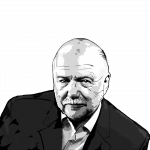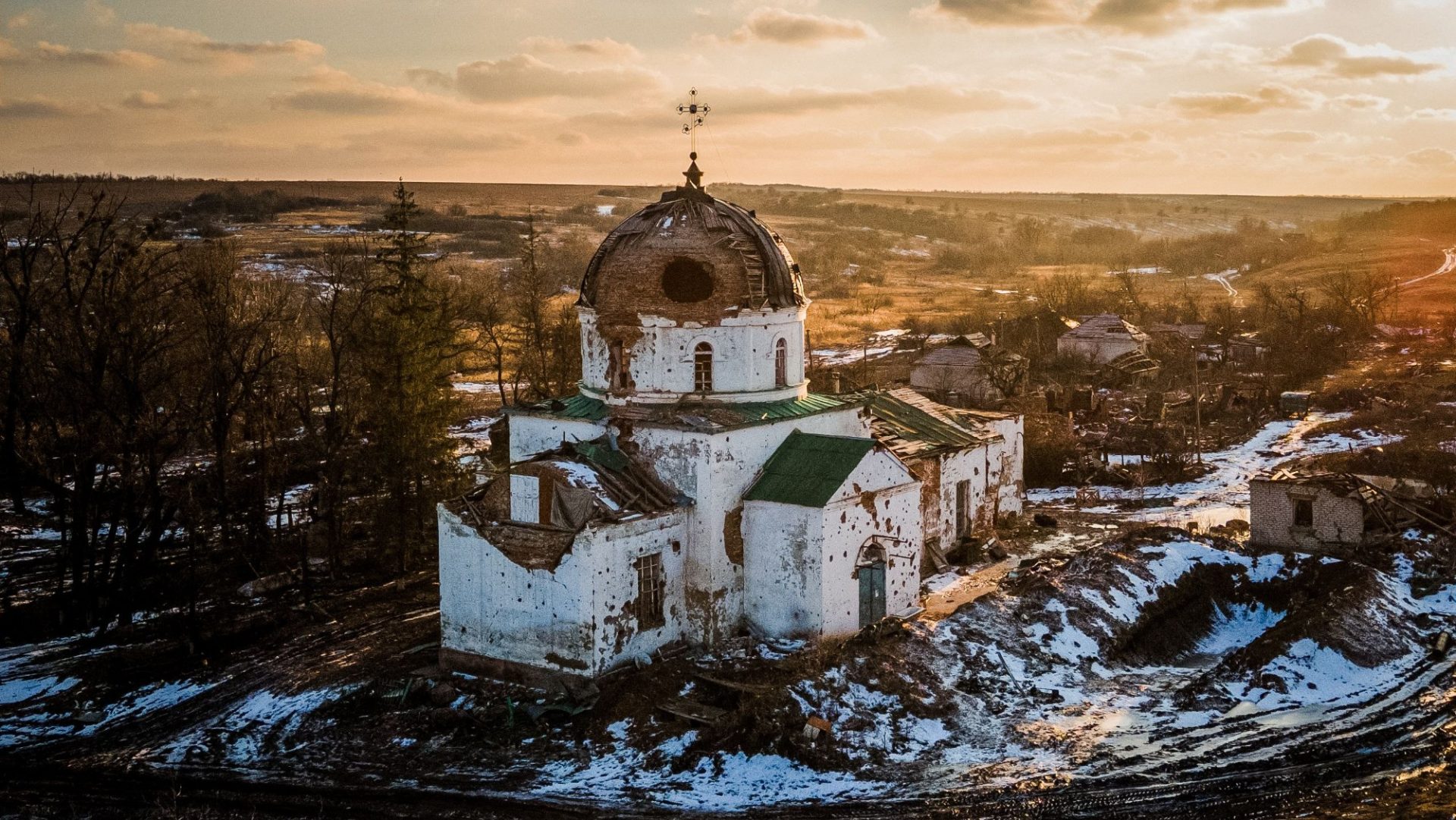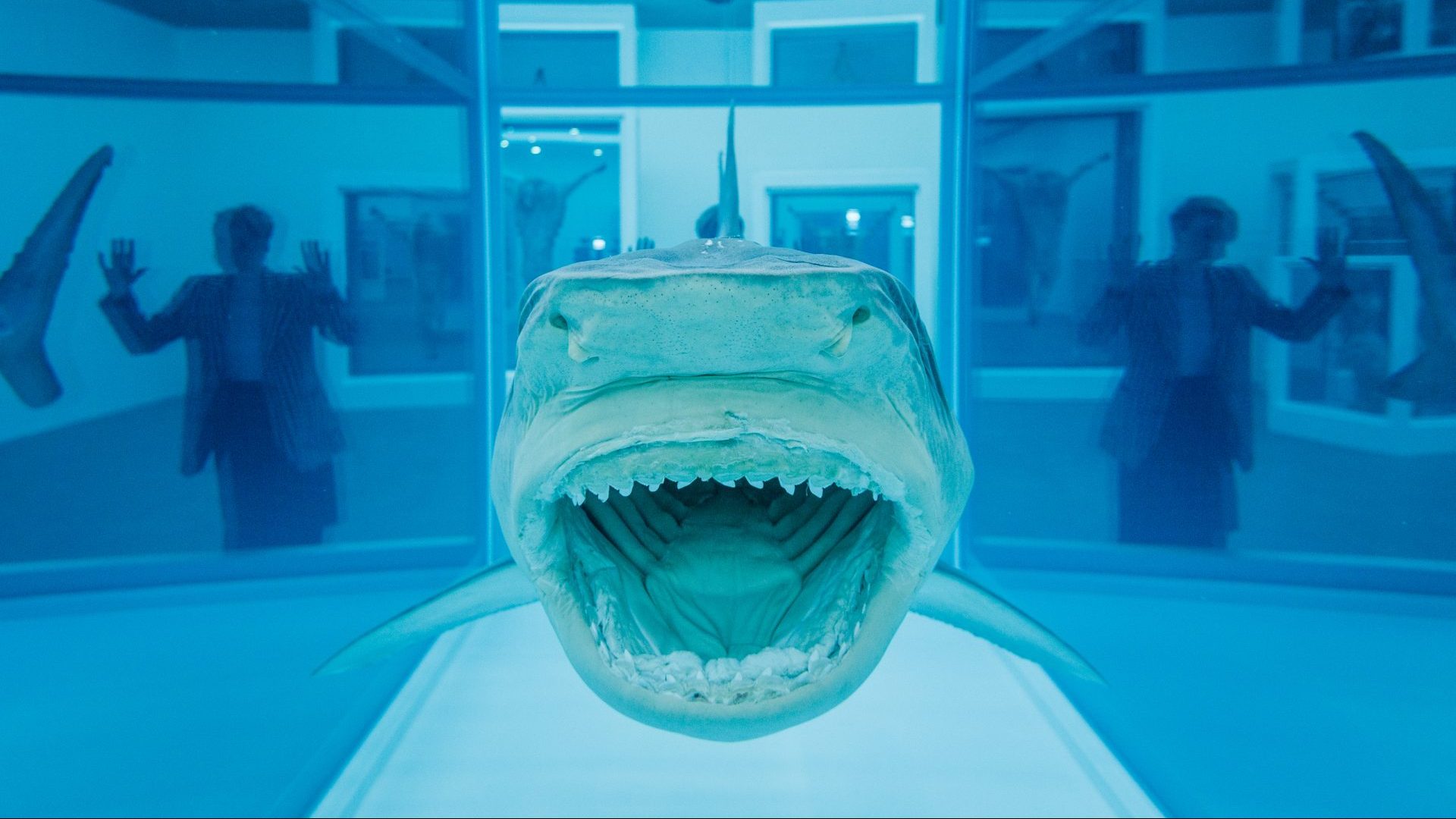Three years ago, on February 24, 2022, explosions were heard across Kyiv at five in the morning. Millions of Ukrainians were awakened by the war. No one went to work. The stores did not open. Anyone who had plans for that day forgot about them. What day of the week it was no longer mattered. A different calendar came into force, one marked only by military action – the number of downed planes, destroyed tanks, killed or wounded soldiers, the distance in kilometres between you and the advancing Russian troops.
I also woke up that Thursday at five in the morning. Running to the window, I looked down at the empty street, at the small square opposite my apartment building, at my beloved city, where the first Russian missiles had just exploded. I stood there for about 40 minutes. Then two more missiles exploded somewhere to the south-east, and I finally understood that a war had begun, a big war that would change my life, that of my family and the lives of tens of millions of people in Ukraine and far beyond its borders.
Russian missiles exploded in almost all regions of Ukraine that day. They wanted to paralyse Ukraine with fear, to show the irrevocable force of their intentions. As kilometre-long columns of Russian military hardware crossed from Belarus and Russia and headed towards Kyiv, troop carriers swooped down on the two military airfields in Gostomel and Vasilkov near the capital and Russian Black Sea Fleet landing ships prepared to attack Odesa. A period of terrifying upheaval had begun which was supposed to lead to the disappearance of Ukraine from the map. In several speeches Vladimir Putin declared this to be the aim of his “special military operation”.
It feels much longer ago than three years. Indeed, the beginning of the Russian aggression came eight years earlier with the annexation of Crimea and the beginning of the war in Donbas, in the winter and spring of 2014, but until February 2022 very few Ukrainians understood the horror and ensuing hardship that the people of those regions had suffered. The international community had not reacted either. Shame on us all.
The independence of the entire country was at stake, and Ukrainians – who had survived the fall of the Soviet Union, the silent stand-off in the Orange Revolution and the murderous battles on the Maidan – faced death at the hands of a neighbour who seemed determined to take revenge on them for their enjoyment of independence, for their love of freedom, for their loud remembering of all the tsarist and Soviet crimes committed against Ukraine, Ukrainian culture and the Ukrainian language.
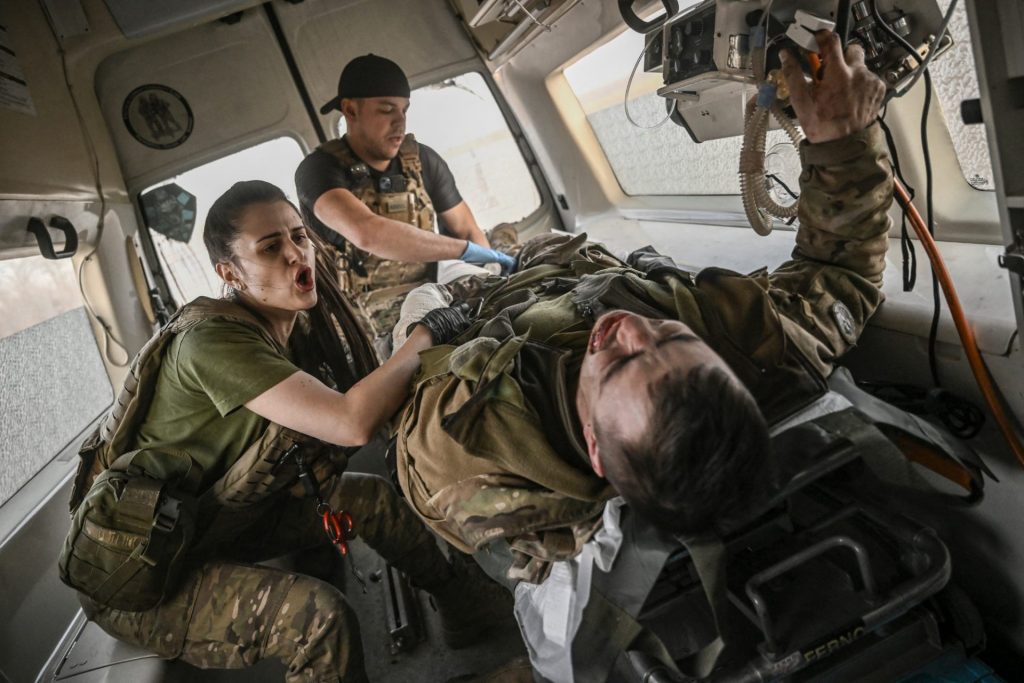
the front line near Bakhmut, March 2023
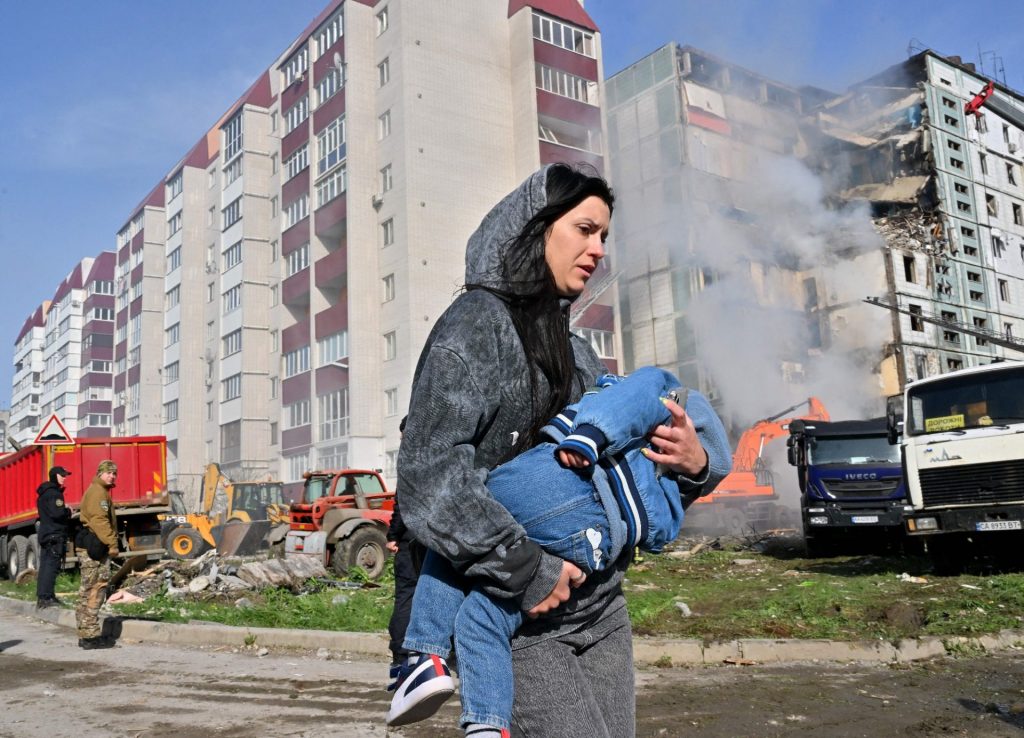
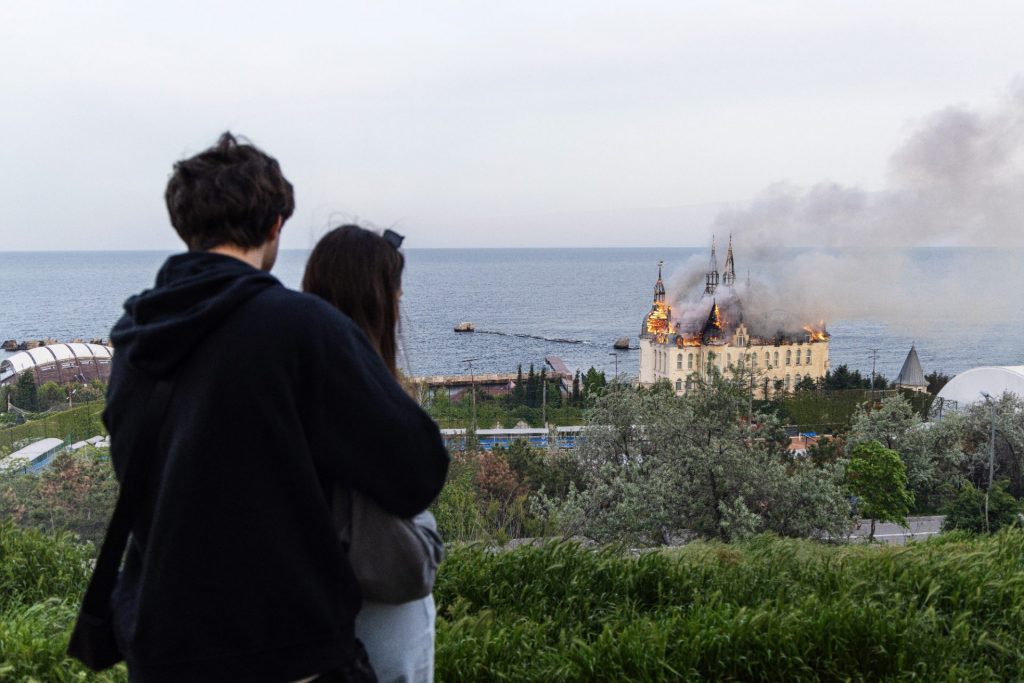
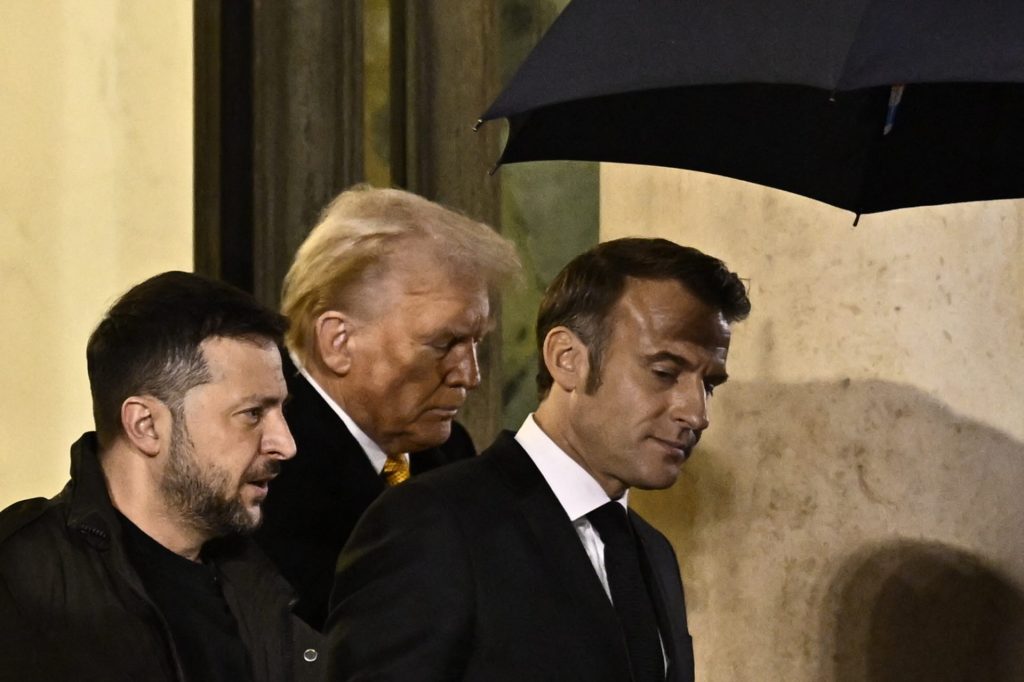
Another event occurred on February 24, 2022 that has influenced the course of this war, but is rarely spoken about – president Zelensky, elected by 73% of voters, stopped being an amateur, populist politician and became a responsible statesman. It is a pity that this did not happen in 2019, with his victory in the election, but at least it happened in 2022. His energy and self-confidence, his belief that Ukraine could defend itself, gradually seeped under the skin of the country’s citizens.
There is a Russian state tradition that always evokes a sarcastic smile in Ukrainians – each year must be dedicated to some important topic around which Russian society should unite. President Putin declared 2017 the Year of Memory and Glory in Russia. Hundreds of patriotic events were organised at public expense. 2015 was the Year of Literature – patriotic literature, of course. 2016 was the Year of Cinema.
Putin declared 2024 the Year of the Family – a year when hundreds of thousands of Russian soldiers would die, turning wives into widows and leaving children fatherless. There is no such tradition in Ukraine. But for me, each year of the full-scale Russian-Ukrainian war has its own name.
2022 can be called The Year of Shocks and Cautious Optimism. After Russia’s unsuccessful attack on Kyiv, the enemy retreated to Belarus and Ukrainian troops liberated captured territories in the Kharkiv region. President Zelensky promised new counterattacks and western partners promised significant military aid. All Ukrainians – both those who were at the front and those who remained in the rear – saw victory just around the corner.
But then came 2023, which I would call The Year of Dashed Hopes. Ukrainians were expecting a powerful counteroffensive and the liberation of the rest of the occupied territories. The chief military intelligence officer of Ukraine, General Budanov, promised that soon we would be drinking coffee on the seafront in Yalta, on the Crimean peninsula. Alas, the counteroffensive did not take place.
There were many reasons, but the lack of weapons and ammunition figured high on the list. I had the constant impression that our western partners were delivering the weapons with a calculated delay of several months and almost always in smaller quantities than promised. It became impossible to plan any military operations except defensive ones. For any counteroffensive you need a huge stockpile of weapons, a need that is impossible to fulfil if deliveries are slow and unpredictable. Among ordinary Ukrainians, disappointment was accompanied by anger rather than depression.
2024, I call The Year of Getting Real. The word “victory”, which was heard in the Ukrainian media all the time throughout 2022 and 2023, almost disappeared from use. The unexpected attack on the Kursk region of Russia by Ukrainian troops was a surprise that pleased some, but angered others who thought it would have been better to use the scarce resources to strengthen the defence of Donbas and the south of Ukraine. However, for more than six months Ukrainian troops have held on in the Kursk region, and this territory may play a role in any negotiations with Russia aimed at bringing a halt to the fighting.
An optimist might say that these territories could be exchanged for captured Ukrainian regions. A pessimist would respond that the Kremlin regime does not care about this captured land or its population. Russia has been mercilessly bombing its own cities and villages that are under Ukrainian control, sparing no thought for the local people or infrastructure. The enemy is confident that Ukraine will not remain there forever. Putin is willing to sit and wait, which means he requires huge resources. As long as Russia can sell oil and gas, Putin will have the ability to fund the army and subsidise the captured territories.
Surely a superhero, individual or collective will suddenly act to turn things around. The Ukrainian army is undoubtedly a collective superhero, but one that is tired and lacks weapons and ammunition. The Ukrainian people are also a collective superhero, but cracks in their unity are beginning to show. They are tired and traumatised by three years of constant stress and the emotional rollercoaster of wartime life.
Whenever I read the results of sociological surveys in Ukraine about ordinary Ukrainians’ hopes of victory I wonder in which part of Ukraine the survey was conducted. Of course, I know the answer. Polls are always conducted on the territory controlled by the Ukrainian government. The government controls more than 70% of the territory of the Ukrainian state. But responses must be primarily those of Ukrainians who are still able to live at home – people who are more comfortable and feel more confident than refugees, than temporarily displaced persons or Ukrainians who remained in the occupied territories.
We do not know what Ukrainians under occupation think. Nor do we know the opinion of Ukrainians who became refugees abroad. Today, more than seven million Ukrainians are living abroad because of the war, including more than half a million children. The longer the war lasts, the less likely it is they will return to Ukraine. Those who have already decided not to return do not believe that peace and stability will be restored in the foreseeable future.
And so there are now four Ukraines: the first is the occupied territory; Ukrainian refugees abroad constitute another; then Ukrainians living in their own homes are a third; and Ukrainian Internally Displaced Persons, a fourth. This last category amounts to about six million people, most of whose homes have been destroyed. I doubt we will find many optimists among this last category. However, at the end of 2024, Ukrainian sociological services reported that 83% of Ukrainians still believe in victory. Perhaps the word “victory” has changed its meaning in Ukraine.
I am not a careless optimist. I am a pragmatic optimist, and, oddly enough, my current optimism is connected with president Trump, who from the very beginning of his presidential term began to imitate Putin’s geopolitical recklessness. Putin annexed Crimea and seized Donbas and part of southern Ukraine. Trump has made reckless statements about wanting Greenland, Canada and Panama to belong to the US. A new Trump has emerged – an even more unpredictable force, showing no respect for international law or territorial sovereignty although he uses big business terminology to make his threats.
If Ukraine is forced to give up territory, this will be seen as evidence that no country was powerful enough to keep Russia from overthrowing a world order based on respect for sovereignty and state borders. Yes, I understand that even if a ceasefire is declared at the front and negotiations begin, these talks can drag on endlessly, because Russia will not agree to withdraw from the captured territories and Ukraine will never give them up.
Trump will put pressure on both Putin and the Ukrainian president, and the process will continue – a process resembling a wrestling match between two ageing machos watched by all Ukraine, Europe and the rest of the world. Trump’s slogan, as we all know, is “Make America great again”. But is impossible to make America great again while Putin is trying to make Russia great again. The US and Russia cannot be great at the same time – and the US has more resources.
Andrey Kurkov is a Ukrainian author of 19 novels, including the bestselling Death and the Penguin

